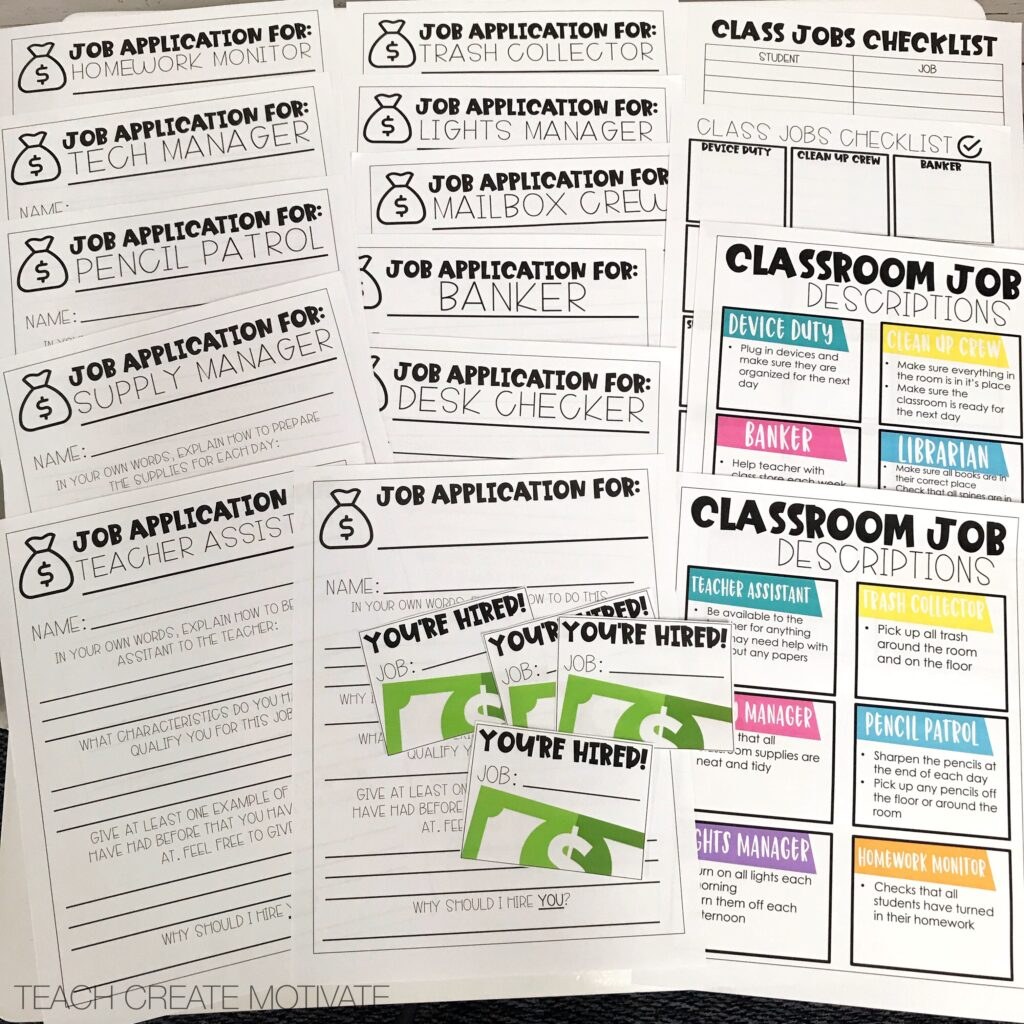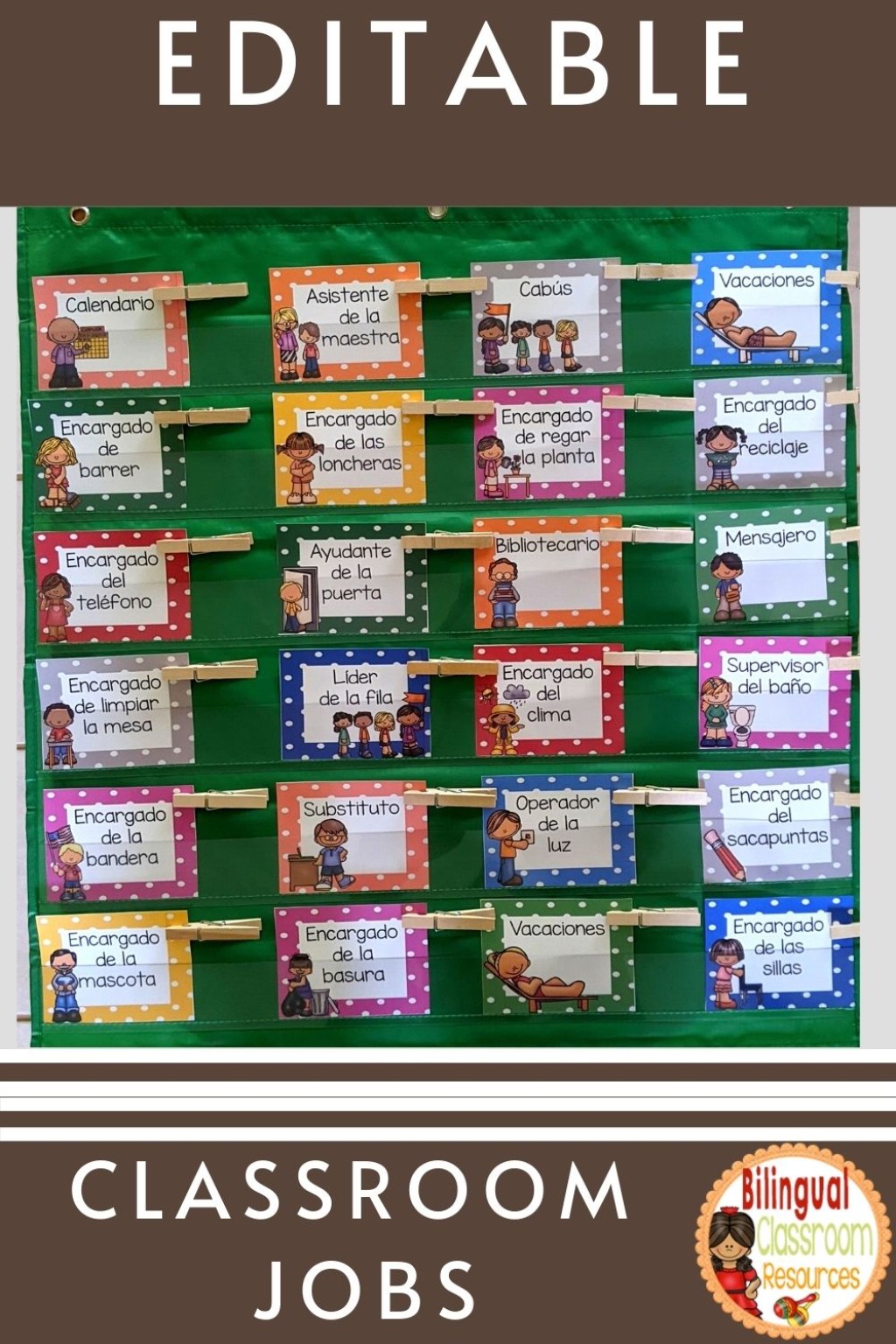Unveiling The Significance: Discover Why Classroom Jobs Are Incredibly Important And How They Empower Students!
Why Are Classroom Jobs Important?
Introduction
Welcome, Smart People and Edu Enthusiasts! In the realm of education, classroom jobs play a crucial role in shaping students’ overall development and creating a conducive learning environment. These jobs not only empower students but also foster a sense of responsibility, teamwork, and essential life skills. In this article, we will explore the significance of classroom jobs and how they contribute to a student’s growth and the overall success of a classroom.
2 Picture Gallery: Unveiling The Significance: Discover Why Classroom Jobs Are Incredibly Important And How They Empower Students!


What Are Classroom Jobs?
🔑 Classroom jobs refer to designated tasks or responsibilities assigned to students within a classroom setting. These jobs vary in nature and can range from simple tasks like line leader or paper monitor to more complex roles such as class librarian or technology assistant. The purpose of these jobs is to distribute responsibilities among students and create a sense of ownership and accountability.
Who Benefits from Classroom Jobs?

Image Source: teachcreatemotivate.com
🔑 Classroom jobs benefit both the students who undertake them and the overall classroom community. Students who are given classroom jobs experience personal growth and develop a range of essential skills such as leadership, time management, problem-solving, and teamwork. Additionally, classroom jobs create a sense of belonging and ownership within the classroom community, fostering a positive and inclusive learning environment for everyone involved.
When Should Classroom Jobs Be Implemented?
🔑 Classroom jobs can be implemented at various grade levels, starting from the early years of education. Introducing classroom jobs early on allows students to develop a sense of responsibility and independence from a young age. However, it is important to consider the readiness and maturity of the students before assigning jobs. Teachers can adapt and modify the complexity of the tasks based on the age and abilities of their students.
Where Can Classroom Jobs Be Applied?

Image Source: blogspot.com
🔑 Classroom jobs can be implemented in any educational setting, ranging from preschools to high schools. These jobs are not limited to traditional classrooms but can also be integrated into homeschooling environments or extracurricular activities. Classroom jobs can be adapted to suit the specific needs and dynamics of any learning environment, making them highly versatile and applicable in various educational contexts.
Why Are Classroom Jobs Important?
🔑 Classroom jobs hold immense importance in a student’s educational journey. Firstly, they instill a sense of responsibility and ownership in students, as they are entrusted with specific tasks that contribute to the smooth functioning of the classroom. By fulfilling their assigned roles, students develop a sense of purpose and pride in their contributions, leading to increased motivation and engagement in their learning.
🔑 Additionally, classroom jobs promote the development of essential life skills. Students acquire and enhance skills such as organization, time management, communication, and problem-solving, which are transferable to various aspects of their lives. These skills not only support their academic progress but also prepare them for future endeavors and careers.
🔑 Furthermore, classroom jobs foster a sense of community and teamwork within the classroom. Students learn to collaborate, cooperate, and support their peers in fulfilling their responsibilities. This collaborative environment cultivates empathy, respect, and inclusivity, creating a supportive learning space for all students.
🔑 Another crucial aspect of classroom jobs is that they promote a student-centered approach to learning. By assigning jobs, teachers empower students to take an active role in their education, shifting the focus from teacher-led to student-led learning. This student agency enhances their independence, decision-making skills, and overall academic growth.
🔑 Classroom jobs also provide opportunities for students to explore their interests and strengths. By offering a variety of job roles, teachers can cater to the diverse talents and preferences of their students. This not only allows students to showcase their individual abilities but also encourages them to discover new passions and talents.
🔑 Lastly, classroom jobs contribute to a positive classroom culture and climate. Students feel valued and respected when given important responsibilities within the classroom community. This sense of belonging and ownership fosters a positive attitude towards learning and creates a supportive and nurturing classroom environment.
How to Implement Classroom Jobs Effectively?
🔑 Implementing classroom jobs effectively requires careful planning and consideration. Here are some key steps to ensure successful implementation:
Evaluate the classroom dynamics and identify the specific needs and goals of your students.
Create a list of job roles that align with the interests and abilities of your students.
Assign jobs fairly and transparently, considering students’ preferences and strengths.
Provide clear instructions and expectations for each job role.
Establish a system for rotating jobs to provide equal opportunities for all students.
Regularly monitor and provide feedback on students’ performance in their assigned jobs.
Celebrate and recognize students’ contributions and achievements in their roles.
Advantages and Disadvantages of Classroom Jobs
Advantages:
Encourage responsibility and accountability.
Promote the development of essential life skills.
Foster a sense of ownership and pride in students’ contributions.
Cultivate a supportive and inclusive classroom environment.
Enhance student agency and independence in their learning.
Disadvantages:
Potential for job-related conflicts among students.
Additional workload for teachers to manage and supervise.
Unequal distribution of job roles if not carefully implemented.
May require additional time for training and instruction on job responsibilities.
Potential for resistance or lack of engagement from some students.
Frequently Asked Questions (FAQs)
1. Are classroom jobs suitable for all grade levels?
Yes, classroom jobs can be implemented in various grade levels, with job roles adapted to suit the age and abilities of the students.
2. How can classroom jobs benefit students’ academic performance?
Classroom jobs promote essential life skills such as organization and time management, which can positively impact students’ academic progress and overall performance.
3. Can classroom jobs be rotated among students?
Yes, rotating classroom jobs allows for equal opportunities and prevents students from getting stuck in the same role for an extended period.
4. How can classroom jobs contribute to a positive classroom culture?
By assigning jobs and recognizing students’ contributions, classroom jobs foster a positive and inclusive classroom culture where students feel valued and respected.
5. How can teachers effectively manage classroom jobs?
Teachers can effectively manage classroom jobs by providing clear instructions, monitoring students’ performance, and regularly providing feedback and recognition for their contributions.
Conclusion
In conclusion, classroom jobs are an integral part of a student’s educational journey. They promote responsibility, essential life skills, teamwork, and a positive classroom culture. By implementing classroom jobs effectively, teachers empower students to take ownership of their learning and create a supportive and inclusive learning environment. So, let’s embrace the power of classroom jobs and witness the transformative impact they can have on students’ growth and overall classroom success.
🔑 Remember, the benefits of classroom jobs extend beyond the classroom walls and prepare students for a future filled with responsibility, collaboration, and success.
Final Remarks
Disclaimer: The views and opinions expressed in this article are solely those of the author and do not necessarily reflect the official policy or position of any educational institution or organization. The author does not claim any responsibility for the implementation or outcomes of classroom jobs in individual educational settings. The readers are advised to consult with their respective educational authorities or professionals for guidance on implementing classroom jobs.
This post topic: Classroom



